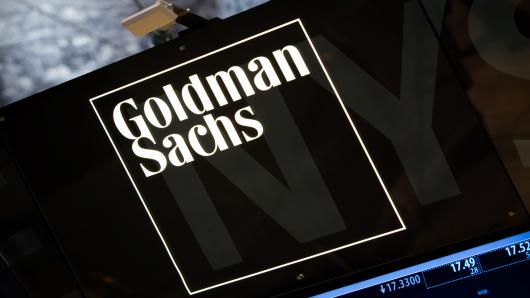Trading teams at JP Morgan, Bank of America Merrill Lynch and Citi trumped Goldman Sachs in the first quarter this year, as it becomes the only investment bank so far to report a decline in trading revenues.
Goldman Sachs saw a quarterly decline within its institutional client services business, with equities and fixed income trading suffering from low levels of volatility and client activity the bank stated.
Equities trading revenues were down 6% in the first quarter this year to $1.67 billion, compared to $1.78 billion in the first quarter last year.
The US investment bank explained lower revenues in commissions and fees, as well as lower trading volumes in the US harmed its equities profits in the first three months of 2017.
“Despite global equity prices generally increasing during the quarter, equities operated in an environment characterised by political uncertainty, low levels of volatility and low client activity levels,” Goldman Sachs said.
Fixed income, currencies and commodities remained largely flat in the first quarter this year, totalling $1.69 billion.
Lloyd Blankfein, CEO at Goldman Sachs, described the operating environment as mixed, with client activity challenged in certain market-making businesses.
Goldman Sachs’ quarterly results differ greatly from those at JP Morgan, Bank of America and Citi, all of which reported significant increases across equities and fixed income revenues.
JP Morgan’s markets and investor services business saw a 17% increase in revenues in the first quarter this year, driven by a 17% surge in fixed income sales.
Citigroup’s equities trading segment was boosted by an improvement in derivatives in the first quarter this year, with revenues up 10% compared to the year prior.
Similarly, at Bank of America Merrill Lynch, fixed income trading revenues soared a significant 29% in the first quarter to $2.9 billion, as equities trading sales increased 7% to $1.1 billion.
Morgan Stanley is the last of the top US investment banks to report its first quarter earnings.
